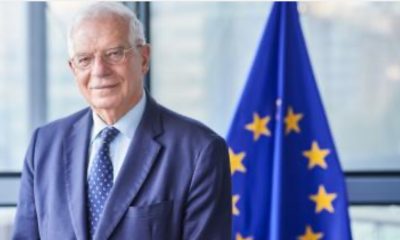Cyber-espionage
Claude Moraes on mass surveillance: 'A balance is needed'

Mass surveillance has been in the spotlight ever since Edward Snowden brought it to journalists’ attention in 2013. This week the civil liberties committee adopted a resolution saying too little has been done to protect people's privacy, while MEPs discussed the Safe Harbour ruling during plenary on Wednesday. The European Parliament gathered questions from its Facebook page fans and presented them to UK S&D member Claude Moraes, chairman of the civil liberties committee and the member in charge of this topic.
The Parliament has had the topic on the agenda several times since 2013, including on Tuesday when the civil liberties committee voted on a resolution. In addition MEPs discussed the European Court of Justice ruling declaring the Safe Harbour agreement on data transfers between the EU and the United States invalid in the plenary yesterday.
We received several questions on how the courts can be used to protect our privacy. How does the recent Safe Harbour ruling affect mass surveillance and data protection?
This European Court of Justice judgement is a severe judgement and it says that the Safe Harbour agreement simply has to stop. It has to stop because the standards of data protection in the European Union are so much higher than they are in the United States.
All of our data – anything from Facebook to Google searches and financial transactions – still goes to the United States, but under different arrangements. Companies will have to make other arrangements to protect our data.
Many Facebook users were also worried about the surveillance by their own governments and Europol. What would you tell them?
While it is true that in the inquiry of mass surveillance we found that there was to be some concern about snooping from our own governments and intelligence services, we have higher standards of protection here in the EU and we have ambitions for higher standards of privacy than they do in the United States.
It is very important to have intelligence services. They perform an extremely important task to protect us from external threats, from terrorism, from other security threats. But it is important that we have an accountability structure so that they don’t exceed their powers and that they don’t invade our privacy where it is unnecessary to do so.
To what degree are we monitored or could be monitored on social media?
I think people now accept that our behaviour on social media is being monitored. What they are not aware of is how that is being done. Certainly with our mass surveillance inquiry we found out exactly what is happening. We suspected many things. Once we saw what Edward Snowden said we learned far more.
For most citizens who are more or less aware that their conversations, their emails and their metadata can be accessed, the issue is really, is their data being accessed for good reasons? Is it to protect us from terrorism threats and so on?
Evidence is accumulating that the balance between privacy and security is being shifted in the wrong direction. The way to shift it back is to understand the technology, to ensure that we have the checks and balances and to ensure that we have accountability structures.
Share this article:
-

 Conferences4 days ago
Conferences4 days agoNatCon’s on-off conference halted by Brussels police
-

 Mass surveillance5 days ago
Mass surveillance5 days agoLeak: EU interior ministers want to exempt themselves from chat control bulk scanning of private messages
-

 Conferences5 days ago
Conferences5 days agoNatCon conference to go ahead at new Brussels venue
-

 European External Action Service (EAAS)5 days ago
European External Action Service (EAAS)5 days agoBorrell writes his job description




























